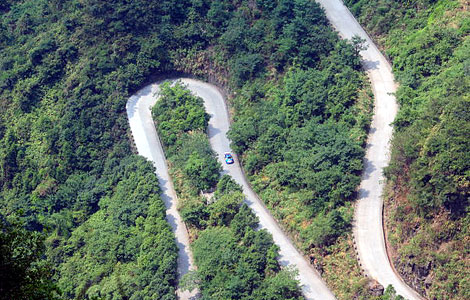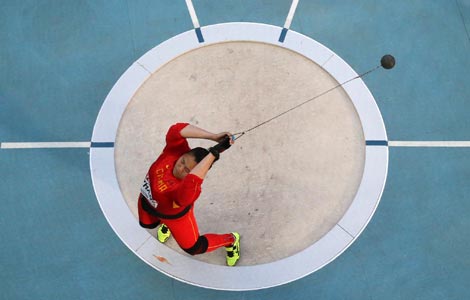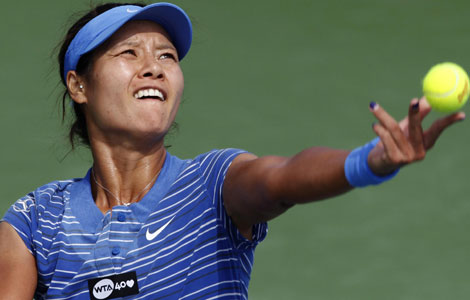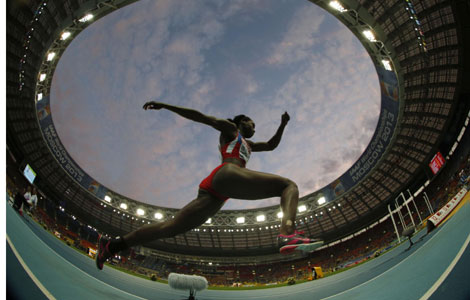

In the search for gold, either it be on a medal or in championship winning, the investment is in training and dedication. Belle Taylor talks to the coaches to find out what it takes.
In downtown Beijing, in a basement in a residential complex, there is a 7-year-old boy with a bunch of golf balls. He is carefully balancing them to make a tower, oblivious to the adults speaking in serious tones around him.
His Norwegian coach, Andy Friis, is chatting to his father about the day's lesson, the parent eager to hear how his son is progressing, Friis charges up to 1,200 yuan ($196) an hour for his expertise.
This is the Players Club, a golf haven in the middle of Beijing.
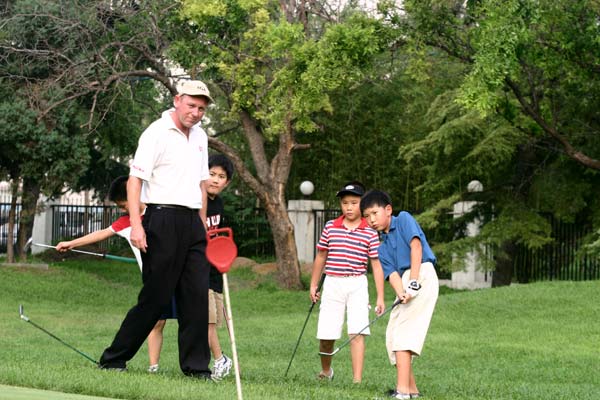 |
|
Foreign coaches are sought after by parents who hope golf will open doors of opportunity for their children. Li Hao / For China Daily |
Large screens depict lush, rolling grass in front of miniature putting greens in a rabbit warren of rooms, each no bigger than a studio apartment. Golfers can hit a virtual ball into the virtual distance, spending hours perfecting their real-life golf swing without having to venture beyond the fourth ring road.
The next Chinese golf star might be breathing the fresh air at Mission Hills Golf Club in Guangdong province, but he or she could also be perfecting their putting to the sounds of electronic nature noises piped through speakers at an underground bunker that looks more nightclub than golf club.
|
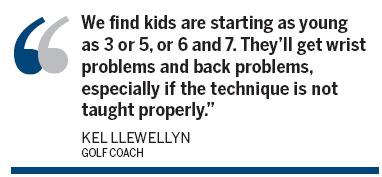 |
In a country with land and water shortages, indoor golf clubs provide a way for the game to be played without sucking up valuable resources.
"I think (clubs such as these) are a good idea, because we have a big population and we don't have much land," says Song Huaxun from the CGA. "If you want more people to know golf these clubs need less land area, and cost less money."
Friis, co-founder of the Player's Club, is passionate about golf development. He may charge big money for his one-on-one training, but he also pours his time into developing golf at a grassroots level, staging tournaments to give youngsters more opportunities to play.
Friis has been involved in golf in China since 2005, when he first came to the country, excited about the opportunities in China. While he is still excited, he says the game has developed more slowly than he expected, but that it started to change in 2009, with the Olympic announcement.
"Now you see golf developing on a different level," says Friis. "Before it was private, and government policies were probably a little bit against golf. But now different provinces are putting money into club development, and different provincial teams."



